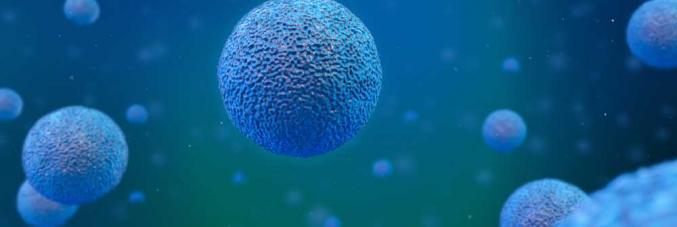
Glutamine and aspartate support tumor proliferation
23.05.2022
What metabolic processes should we inhibit to block tumor growth? The research group led by Massimo Santoro of the Department of Biology at the University of Padua answered this question in the article entitled “Aspartate metabolism in endothelial cells activates the mTORC1 pathway to initiate translation during angiogenesis.” Published in the journal Developmental Cell, the study shows that endothelial cells specifically use chemical transformations of the amino acids glutamine and aspartate to support tumor growth.
Angiogenesis is the formation of new blood vessels by endothelial cells (the tissue that lines the inside of blood vessels and the heart) and is a complex biological process playing a key role in many biological processes. It is indispensable in physiological states, such as normal tissue growth, embryonic development, wound healing, and during a women’s menstrual cycle. It also plays a not always favorable role in pathological processes such as cancer.
The study describes a new molecular mechanism by which endothelial cells synthesize proteins determining the proliferation of endothelial cells themselves, such as membrane receptors proteins for the Vascular Endothelial Growth Factor (VEGF). The mechanism also appears to be involved in the synthesis of nucleotides, the building blocks of DNA, which are essential for cell division to take place.
Experiments using laboratory mice models show that inhibiting these metabolic and molecular processes can block tumor angiogenesis, therefore leading to tumor mass regression.
The results obtained could help us to understand how to overcome resistance to anti-VEGF therapy, an anticancer treatment. Anti-VEGF drugs prevent the formation of new blood vessels and treat various diseases characterized by excess blood vessels, such as maculopathies, venous thrombosis, retinal arteries and some tumors. The anti-VEGF therapy is, to date, the only one used in the treatment of tumor angiogenesis. However, the results are so far scarce due to resistance phenomena that cause tumor relapses that are insensitive to the drugs themselves.
"The research has brought to light another important research perspective. On the one hand, we could inhibit the angiogenesis process when the disease stimulates excessive vessel formation. On the other hand, we could activate angiogenesis when the formation of vessels is inhibited or too limited in the disease. In the future, concludes Professor Massimo Santoro, activating the identified metabolic processes may allow us to recover the angiogenic capacity when it is interrupted, as in ischemic and neurodegenerative diseases. It should thus become possible to restore the physiological function of forming new blood vessels necessary to repair tissue damage."



